Lisa Jo Barr’s recovery story is a tapestry woven with pain, resilience, and the transformative power of faith.
In her memoir, The Pit of Despair: How God, Prayer, and the 12 Steps Saved My Life from Addiction, she invites readers into the depths of her struggles with childhood trauma, addiction, and shame—and her ultimate journey toward healing.
Her words reveal not just a woman who survived but one who found purpose through grace, offering hope to others walking similar paths.
As we spoke of deep traumas and wounds, I could still see the hope in her eyes. Her warm smile and big smile were not an indication of what her recovery journey was like.
A Fractured Beginning: A Recovery Story
A devastating betrayal shaped Lisa Jo’s childhood. “When I was little, a male relative molested me,” she shared. “That kind of violation doesn’t just hurt you in the moment—it alters how you see the world, how you see yourself.”
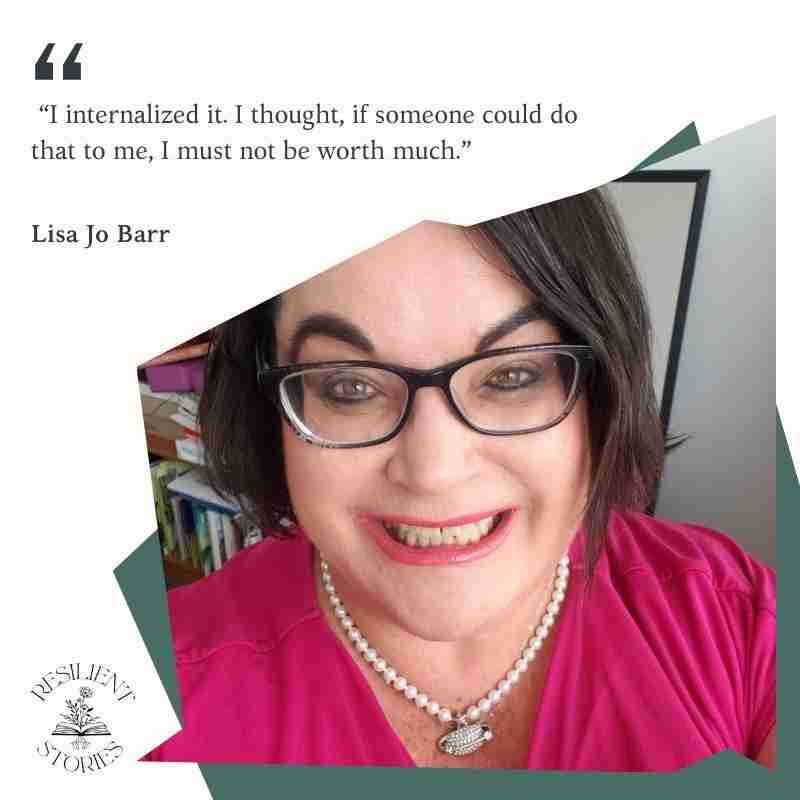
The experience left her burdened with shame and anger. It planted a seed of self-doubt that grew as she got older, influencing every relationship and decision. “I internalized it,” Lisa Jo said. “I thought, if someone could do that to me, I must not be worth much.”
But like many survivors of childhood abuse, she buried her pain, never fully understanding the toll it was taking on her life and how it would later manifest as substance abuse.
Numbing the Pain of Substance Abuse
As Lisa Jo entered adulthood, her unresolved trauma manifested in destructive ways.
She turned to food for comfort, then cocaine and sex for escape, leading to a substance use disorder. “Addiction became my way of coping,” she said. “I wasn’t addicted to the substance itself—I was addicted to the numbness it gave me.”
Her addictions soon spiraled out of control. “I was living a double life,” she admitted. “On the outside, I looked like I had it together. But inside, I was falling apart.”
The cycle of shame and dependency seemed unbreakable. She would find temporary relief, only to be plunged back into despair. “I didn’t want to feel anything,” Lisa Jo said. “But not feeling meant I wasn’t living, either.”
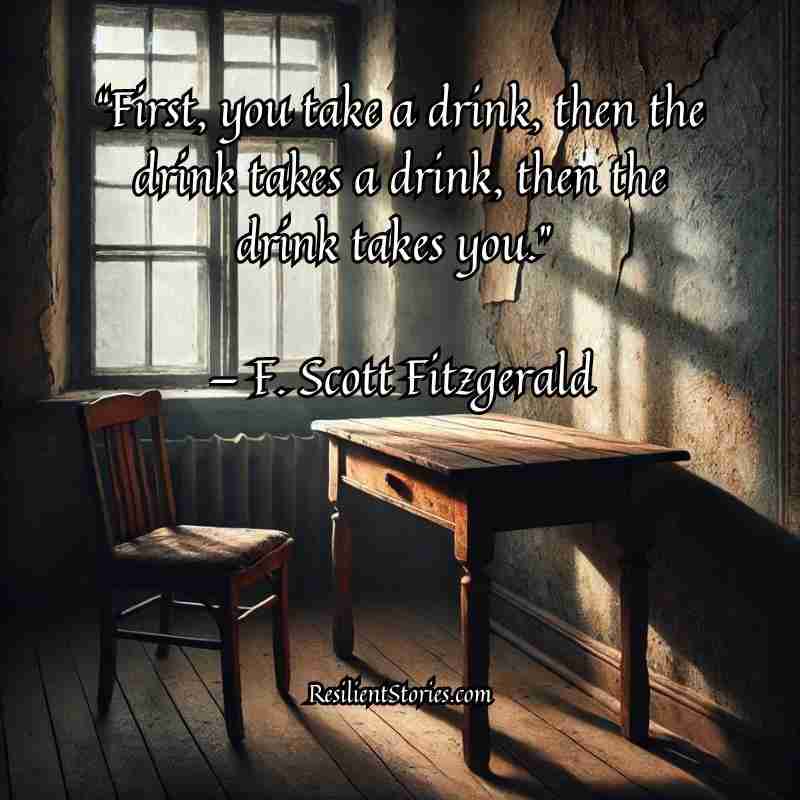
A Divine Intervention
In 2007, Lisa Jo stumbled onto a sex recovery site on the internet. It was a 12-step program.
Lisa Jo’s life forever changed, and it was a real turning point in her life. “It wasn’t an overnight transformation,” she admitted. “But slowly, I began to feel something I hadn’t felt in years—hope.”
“It wasn’t an overnight transformation,” she admitted. “But slowly, I began to feel something I hadn’t felt in years—hope.”
In April 2021, Lisa Jo gave her life to Christ after watching a Joel Osteen sermon.
One of the most powerful moments of her Christian journey came on the Christmas morning after she had given her life to Christ. Lisa Jo learned that the man who had molested her was a soldier in the Vietnam War.
She also discovered that he was tormented by his own demons, unable to sleep at night, and plagued by nightmares.
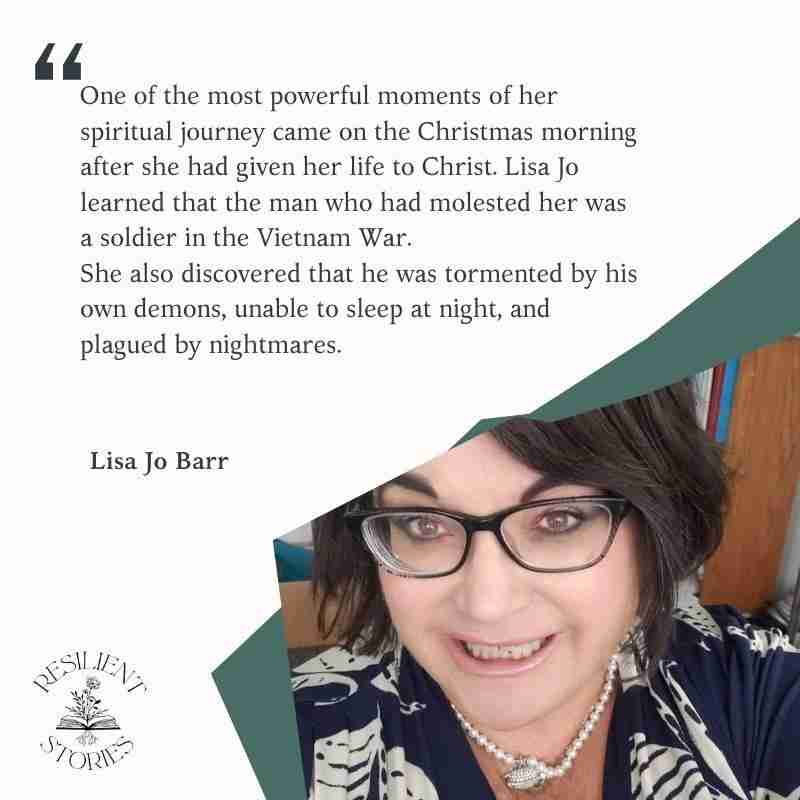
“For years, I carried so much anger toward him,” Lisa Jo said. “But for the first time, I felt compassion. I didn’t plan what happened next—it was like God put the words in my heart.”
Lisa Jo picked up the phone and called him. “We talked for a while. I told him I forgave him,” she said. “There was silence on the other end, and then he said, ‘Thank you.’”
The act of forgiveness wasn’t about excusing his actions; it was about releasing herself from the weight of fear and seeing this person as a monster.
“Forgiveness doesn’t mean forgetting,” she explained. “It means choosing freedom over bitterness.”
Recovery Stories
Recovery stories are a beacon of hope for those grappling with addiction. They shine a light on the strength and resilience of individuals who have navigated the tumultuous waters of addiction and emerged on the other side, living a life of recovery.
These true stories are not just tales of triumph; they are lifelines for those still in the throes of their struggles.
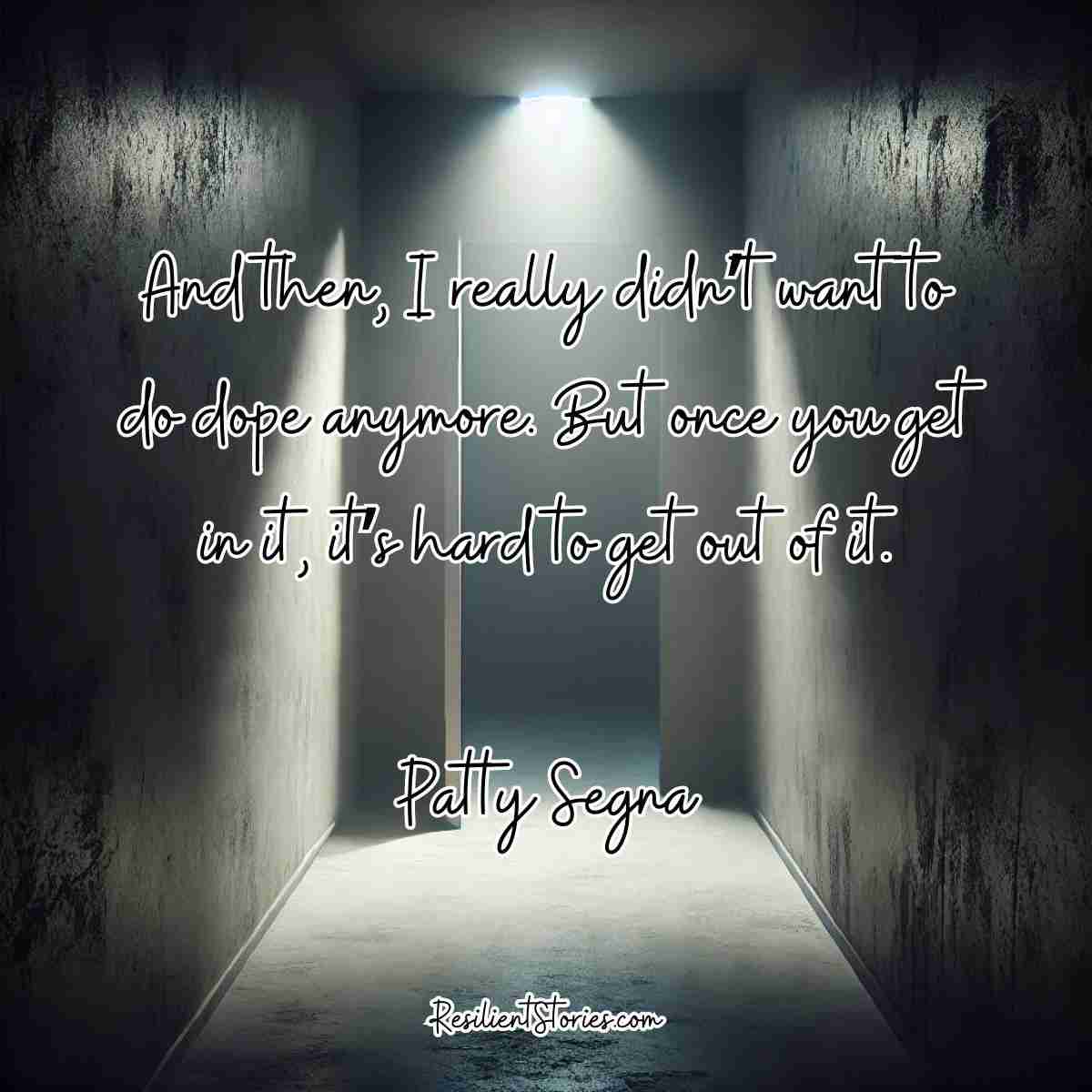
By sharing their experiences, recovering addicts can help dismantle the stigma surrounding addiction and mental health.
Each story is a testament to the fact that recovery is possible, that life can be rebuilt, and that material things lost to addiction can be regained in new, meaningful ways. Whether through written accounts, videos, or podcasts, these narratives create a sense of community and connection among those on similar paths.
Recovery stories also serve as powerful reminders that addiction is a treatable condition. They offer valuable insights into the recovery journey, highlighting the challenges and victories along the way.
By opening up about their experiences, individuals provide hope and encouragement, showing that a life of recovery is not just a dream but a tangible reality.
Mental Health and Addiction
The intricate dance between mental health and addiction is one that many individuals know all too well.
Often, those who struggle with substance use disorders are also battling mental health issues like depression, anxiety, or trauma.
Research underscores this connection, revealing that individuals with mental health conditions are more susceptible to developing substance use disorders.
The relationship between mental health and addiction is a vicious cycle. For instance, someone with depression might turn to substances to numb their emotional pain, only to find that their depression worsens.
Similarly, an individual with anxiety might use substances to calm their nerves, leading to increased anxiety over time. This interplay makes it crucial to address both issues simultaneously in treatment.
Comprehensive treatment plans often include therapy, medication, and support groups, aiming to tackle both mental health and addiction head-on.
By addressing these intertwined issues, individuals can significantly improve their chances of achieving and maintaining a life of recovery. Understanding this connection is vital for anyone on the recovery journey, as it highlights the importance of holistic, integrated care.
The Road to Recovery Journey
Forgiveness was only the beginning. Lisa Jo’s healing journey required confronting the patterns that had kept her trapped for so long.
It catapulted her life into a direction of freedom, empowerment, and self-love.
Through a 12-step recovery program, she began to take accountability for her life while surrendering to her life and will to God.
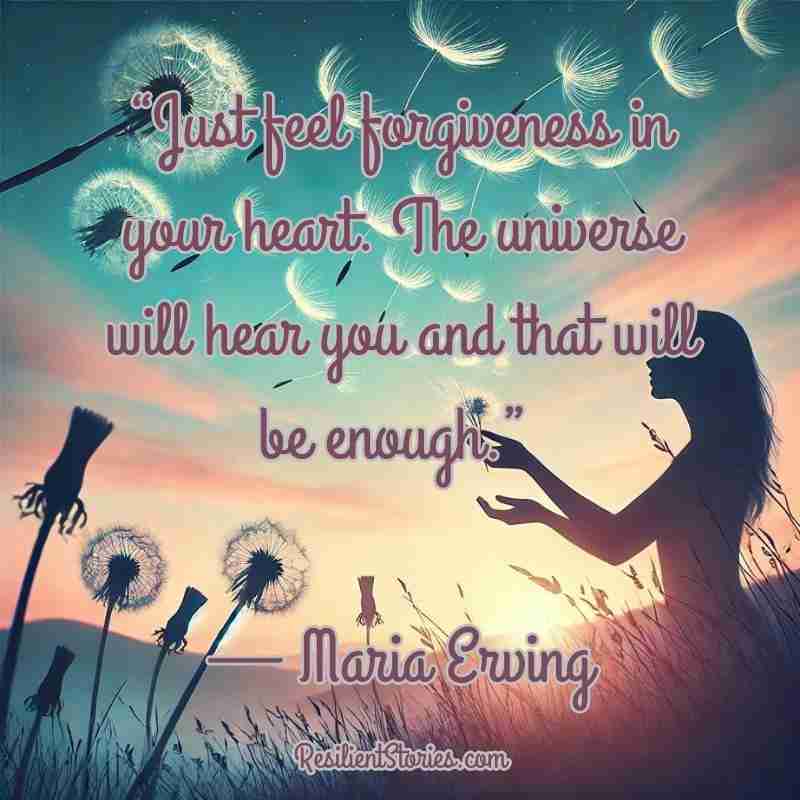
“The 12 steps taught me so many things,” she said. “They gave me a framework for healing—not just from addiction, but from everything that had broken me.”
Prayer became a cornerstone of her recovery. In her book, she includes heartfelt prayers, each one designed to guide others through their own healing journeys. “Prayer isn’t just about asking for things,” Lisa Jo said. “It’s about building a relationship with God, finding peace in His presence.”
Breaking the Chains of Shame
In her role as a Peer Specialist in a community mental health center, Lisa Jo’s passion manifests as dismantling the stigma surrounding addiction.
“Addiction is a disease, not a moral failing,” she said. “But society makes people feel like it’s their fault, like they should be able to just stop. That kind of thinking keeps people trapped in shame.”
Through her book, coaching, and public speaking, Lisa Jo hopes to change the narrative. She wants others to see that recovery is possible—that they are not alone in their struggles as a recovering addict.
“When we share our stories, we break the chains of isolation,” she said. “There’s so much power in saying, ‘Me too.’”

Support and Advocacy
Advocacy and support are the twin pillars that uphold the recovery journey. Advocacy involves championing policies and practices that provide individuals in recovery with the resources they need, such as access to treatment and support services.
Support, on the other hand, is about offering emotional and practical assistance, whether through support groups or peer mentoring.
Advocacy can take many forms, from volunteering and donating to participating in campaigns that promote recovery-friendly policies.
By advocating for recovery, we help create a society that is more inclusive and supportive of those struggling with addiction. This societal shift is crucial for breaking down the barriers that keep individuals trapped in cycles of substance use.

Support groups, such as 12-step programs, offer a sanctuary for individuals in recovery. These groups provide a sense of community and connection, allowing members to share their experiences and receive guidance from others who have walked similar paths.
Peer mentoring is another powerful form of support, where individuals who have navigated the recovery journey offer their insights and encouragement to those just starting.
Advocacy and support are indispensable to the recovery journey. By promoting recovery-friendly policies and providing emotional and practical support, we can help individuals not only stop drinking or using substances but also build fulfilling, meaningful lives.
A Recovery Story is A Life Transformed
Today, Lisa Jo’s life is living proof that no one is beyond redemption. A positive recovery story from sex and drug addiction is possible.
Her life isn’t perfect, but it’s filled with purpose and gratitude. “Recovery is a journey, not a destination,” she said.
“I still have bad days. But now, I know I’m not walking through them alone.”
Her story is one of hope—a testament to the resilience of the human spirit and the boundless grace of God.
“God doesn’t waste pain,” Lisa Jo said. “Every struggle, every setback—it all has a purpose. My journey isn’t just about me. It’s about showing others that there’s always a way out of the darkness.”
Has God or a higher power helped you in your recovery journey? Let us know in the comment section.

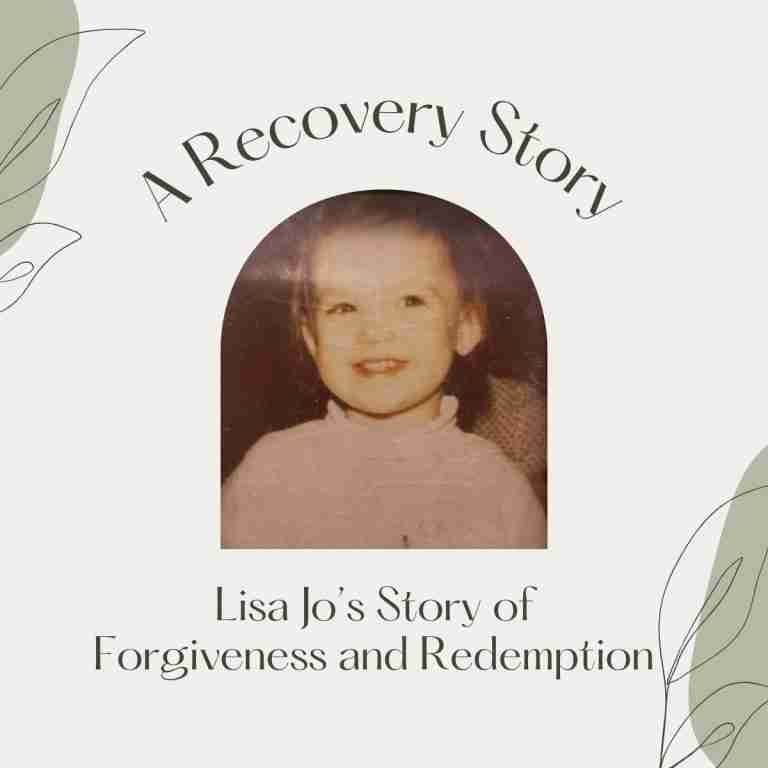
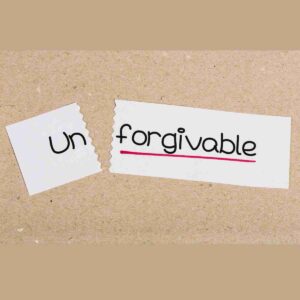






















0 Comments